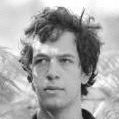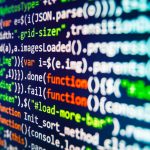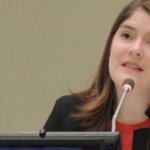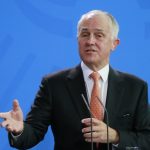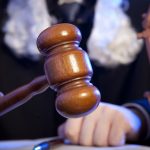The War on Journalism – How 9/11 Changed Everything
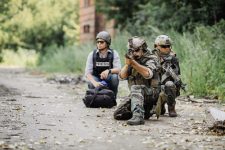
For more than two and a half decades, Peter Greste worked as a foreign correspondent in some of the world’s most volatile warzones. Born in Sydney, he left Australia in 1991 to pursue a career that saw him from report from frontlines in Bosnia, Latin America, South Africa and the Middle East.
That all changed in 2013, when he and two of his colleagues were arrested in Egypt while covering the aftermath of the 2013 coup for Al Jazeera. He and others were charged with reporting news that was “damaging to national security”, after they interviewed members of the Opposition to the Egyptian Government – a draconian precedent that would be an unlawful arrest case in most countries.
In letters smuggled from prison, he described the arrests as an attack on media freedom. The letters helped launch a global campaign that eventually got them released after more than 400 days in prison.
Now based in Queensland, Greste has detailed his experiences in his book, The First Casualty, warning of the way Government’s around the world are willing to use national security as an excuse to crackdown on journalism and free speech.
Mr Greste spoke to Sydney Criminal Lawyers® in the lead-up to his upcoming PEN Lecture at the Sydney Writers Festival, ‘The War on Journalism – How 9/11 Changed Everything.’
Your book, The First Casualty, is based on your work as a war-zone correspondent, and describes ‘how the war on journalism has spread from the battlefields of the Middle East to the governments of the West’.
My first question is, more broadly, what you mean by this? What changes have you seen through your work over the last three decades?
Will basically, my thesis is that in past a lot of the wars were over tangible things, like land, water or ethnicity, and even though its always been a dangerous job, journalists working on the frontlines have been treated as outsiders.
What happened after 9/11, is that we saw a conflict open up over ideas, and in that conflict the place where ideas are transmitted, in other words the media, has become a part of the battlefield.
I don’t think this is an abstract idea, in the aftermath of 9/11 journalists began being targeted in a way that they hadn’t before.
The Americans dropped a bomb on the Al Jazeera bureau in Kabul, which they initially denied, but then acknowledged because they believed ‘it was a meeting place for extremists’; we had a bunch of journalists murdered by the Taliban, who said that they were under orders to specifically kill journalists; and then of course we had the beheading of Daniel Pearl.
These seemed to be the first times that journalists were targeted, not because of any specific reporting, or because of crossfire, but specifically because of who they were.
What happened to us in Egypt is a prime example of this, we weren’t imprisoned because of our work per se – we were there on terrorism charges, and charges of undermining national security through the broadcast of ‘false news’.
The charges applied because we were interviewing a group that the government had decided to label as a ‘terrorist organisation’, and because of that we were accused of somehow promoting terrorist ideology.
Since then, governments around the world, including our own, have begun using the War on Terror as an excuse to broaden national security legislation, often in ways that encroach on the work that journalists do.
Legislation such as the Data Retention Bill, Espionage Act and Foreign Interference Bill, make it incredibly dangerous for whistleblowers to approach journalists, especially when dealing with national security information.
What worries me is that, in our rush to secure ourselves, we seem to have broadened the net so widely that we’re losing the importance of protecting freedom of speech and freedom of the press.
In your TED Talk last year, you pinpointed Bush’s 2001 speech, ‘You’re either with us or against us’, as the starting point of this type of backslide for press freedom in America.
Is there a similar moment that you can think of when this also started to become a reality in the Australian context?
That’s a really that’s a really interesting question, I think it’s hard for me to put my finger on it, mostly because I was out of the country from the early-90s till I got back from Egypt in 2015, but I think Andrew Wilkie’s case is a really interesting one.
Wilkie was a whistleblower who had worked as an analyst at the Office of National Assessments, specifically on the hunt for weapons of mass destruction in Iraq. He’d made several reports to the government saying that he couldn’t find evidence to substantiate the claims they were making publicly, and out of a sense of duty he eventually went to the media to present his case.
After that, he came under tremendous pressure: he lost his job, he was sidelined, he suffered enormously because of it. I think that was a really important date case, one that showed things had fundamentally changed.
You’ve made this point before, that if you look at the number of journalists that are arrested around the world, something like ⅔ are facing charges of sedition or disseminating news against the state – largely unlawful arrest cases by most standards. How has this come to be?
I think in the past, Western governments, led largely by the United States, have been able to put pressure on emerging democracies to protect press freedom, and they’ve done it from a position of moral authority.
But after 9/11, Western governments are prepared to overlook human rights abuses if from governments they are collaborating with on the War on Terror. Rather than place human rights on the top of the agenda, they’ve begun placing national security at the top.
Egypt is a good case-and-point of this, the new Sisi government has introduced a regime that by all accounts is far more draconian than that of Mubarak at the time he was ousted, and yet because Sisi is seen as a bulwark against Islamic extremism, because he is seen as such an important strategic ally, he has to be supported at all costs.
I think that’s a very dangerous step, because frankly there’s plenty of evidence to suggest that that kind of draconian approach actually encourages extremism more than than it eliminates it, but because the government uses terms like the ‘War on Terror’, and a ‘fight against terrorism’, we tend to buy into that thinking, and that that’s that’s frankly quite dangerous.
On Egypt, thinking back to 2013, did you notice these changes happening around you? Did you seen any warning signs, did you expect to be targeted and arrested as a journalist?
There’s no doubt that the relations between the government and the media had soured, I can recall a few examples when the press had been accused of I’ve been foreign spies or trying to undermine the government. All foreign journalists were becoming increasingly cautious about being seen in the public, because there were a lot of very angry mobs targeting people that they saw as ‘spies’, or agents of Western influence.
Al Jazeera in particular had been targeted by a lot of pro-government activists, so we knew that that was taking place, and a lot of other journalists were aware of that. But in the weeks
In the weeks leading up to the arrest, what we didn’t see, what nobody saw was the extent of the hostility. I should rephrase that, I certainly didn’t see it, I didn’t anticipate it and I didn’t understand the extent of that hostility.
And how did you survive being in prison?
It’s a very complex question, and there’s a lot of ways I can answer it, but the simplest explanation is that we were working very hard to try and… we wanted to make it about a cause.
The first struggle was to understand why we were there, and once I understood it as an attack on press freedom, rather than at a specific attack on anything that we’d done, it externalised what we were going through, it made it more broadly significant. We were fighting for something much bigger than ourselves, and that made a huge difference.
I’m not saying that I wasn’t afraid, but you understood why and how others that had been through prison managed to survive when fighting for a principle. There are a bunch of other details and strategies that we adopted while we were there, but fundamentally that was one of the most important psychological supports that helped us get through. We knew that we had a lot of international support as well, and knowing that we weren’t alone, or strung out, made a massive difference.
When you were arrested in 2013, one of the things that you were charged with, alongside providing support for terrorism, was the dissemination of false news.
Since then, and especially since the 2016 US Election, that term has become a much more accepted part of political discourse. What effects do you think this mainstreaming of ‘fake news’ has had on journalism and political discourse?
It’s been hugely damaging, for a start it’s give a licence to politicians and people generally to say that anything that they don’t like, or that disagrees with their worldview, is ‘fake news’. People were always a little bit sceptical of news, but what we’ve seen in the explosion of “fake news” is a serious collapse in the relationship of trust between media and their audiences.
Then let’s go back to what we were talking about earlier: governments using that term fake news as a way of criminalising journalism.
In the last few weeks, the Malaysian government has passed a law criminalising false news, but their definition of false news is anything not authorised by the government – and that makes it not just not difficult in terms of maintaining public trust, but it’s made incredibly dangerous to contradict the government.
I think that Trump hasn’t gone quite that far, and I think there are plenty of checks and balances that would that would prevent the United States from that sort of thing, but the whole thing around fake news has been very damaging indeed.
I think you’ve used the term grey-zone when describing that space for contradicting opinion. What is it, and why is it important?
The ‘grey-zone’ really came out that TED talk last year, I by that I mean it’s that space that allows us to have difference, that allows us to have difficult conversations, that allows us to have disagreements without ending in a fight, it’s that space that allows democratic exchange to happen.
Let’s face it, we don’t live in a homogeneous society, and I don’t think there’s anywhere that’s truly homogeneous, so you need to have that grey-zone that allows for difference, that’s sanctioned both socially and also legally.
The problem is that the the term ‘grey-zone’ is also was used by Islamic State, and they use that term because they’re trying to eliminate it; they say the grey-zone is dangerous, that the grey-zone opens up questions; and they want to make the world a binary place where you’re ‘either with us, or against us.
There’s a reason that phrase comes up again, it’s because in their argument they actually quote George W. Bush, and that’s a really frightening, but also highlights that the grey-zone is one of the most fundamental elements of a functioning democracy, and one that needs to be protected.
Lastly, in a material sense, what can people do, whether they’re journalists or just citizens that care about that grey-zone, do to protect press freedom more generally especially in Australia?
I think that there are two things: one, is to respect media organisations, we need to acknowledge the importance of a functioning media, and I know hard times make it difficult for everybody to pay for news, but fundamentally that’s really important, to subscribe to news that you can trust.
Secondly, we need to support public debate and public discussion, we need to be talking to our MPs, and arguing that we can’t afford to pass laws that undermine media freedom, especially when it comes to legislation around national security.
PEN Lecture: ‘The War on Journalism – How 9/11 Changed Everything’
Wednesday, May 2, 2018
6:30 PM – 7:30 PM
Seymour Centre, Everest Theatre
Corner of City Road and Cleveland Street
Adult: $35
Concession: $20
